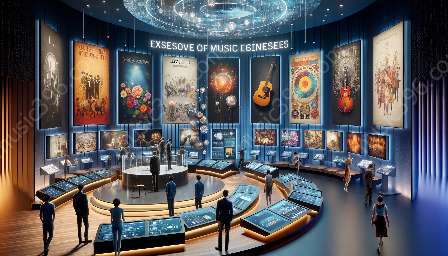Music has the remarkable ability to transcend cultural barriers, connect people from diverse backgrounds, and foster communication across different cultures. When considering the role of music in cross-cultural communication, it becomes evident that music can serve as a powerful tool for building bridges and promoting understanding among individuals and communities.
Understanding Cross-Cultural Communication
Cross-cultural communication refers to the exchange of information and ideas among individuals from different cultural backgrounds. It encompasses the process of understanding and interpreting cultural cues, norms, and values to effectively interact with people from diverse cultural backgrounds. While language is an important aspect of communication, non-verbal forms of expression, such as music, also play a significant role in facilitating cross-cultural understanding.
Musicology: Exploring the Cultural Significance of Music
Within the field of musicology, scholars examine the cultural, historical, and social contexts of music, seeking to understand the ways in which music reflects and shapes the societies in which it is created and performed. By delving into the study of music from different cultures, musicologists gain insights into the diverse musical traditions, practices, and interpretations that are integral to each cultural group.
Musicology provides a framework for evaluating the cultural significance of music and its impact on cross-cultural communication. As scholars investigate musical expression within specific cultural contexts, they illuminate the unique ways in which music serves as a medium for conveying emotions, beliefs, and experiences, ultimately contributing to the development of shared narratives and understandings among different cultures.
The Role of Critical Musicology
Critical musicology takes a thought-provoking approach to the study of music, questioning dominant perspectives and challenging existing power dynamics within musical discourse. It seeks to deconstruct and reassess the traditional narratives surrounding music, particularly with regard to its role in cross-cultural communication and representation.
Critical musicologists examine how music can either reinforce or dismantle hegemonic structures and cultural hierarchies. By critically analyzing the ways in which music is consumed, promoted, and commodified within and across cultural boundaries, critical musicology sheds light on the potential for music to either perpetuate stereotypes and misunderstandings or act as a catalyst for cross-cultural understanding and solidarity.
Music as a Unifying Force
Music has an unparalleled capacity to evoke emotions, evoke memories, and inspire connections between individuals. Whether through traditional folk songs, classical compositions, or contemporary global music trends, the intrinsic emotive and expressive qualities of music have the power to transcend language barriers and resonate with individuals from diverse cultural backgrounds.
As a result, music acts as a universal language that can be understood and appreciated across cultural divides. It provides a platform for shared experiences and narratives, fostering empathy, tolerance, and mutual respect among individuals who may otherwise have limited means of communication.
Fostering Intercultural Dialogue through Music
Music serves as a medium for initiating and sustaining intercultural dialogue and exchange. Festivals, concerts, and musical collaborations that feature artists from different cultural backgrounds not only showcase the diversity of musical expressions but also create opportunities for individuals to engage in meaningful interactions and gain insight into the cultural contexts from which the music originates.
By participating in musical events that celebrate cultural diversity, individuals can gain a deeper appreciation for cultural differences while recognizing the shared human experiences that music encapsulates. Through this process, music becomes a catalyst for breaking down stereotypes, fostering mutual understanding, and promoting openness to diverse cultural perspectives.
Conclusion
At its core, the role of music in cross-cultural communication is multifaceted and profound. From a musicological perspective, the study of music within diverse cultural frameworks highlights the ways in which music shapes, reflects, and connects different societies. Moreover, critical musicology challenges us to reevaluate existing power dynamics and narratives related to music, encouraging a more inclusive and equitable approach to cross-cultural communication through music.
Ultimately, music has the potential to bridge cultural divides, nurture empathy, and promote dialogue and understanding among individuals and communities worldwide. As we continue to explore the intersection of music and cross-cultural communication, we are reminded of the universal resonance and unifying power of music, transcending linguistic, social, and cultural boundaries.



















